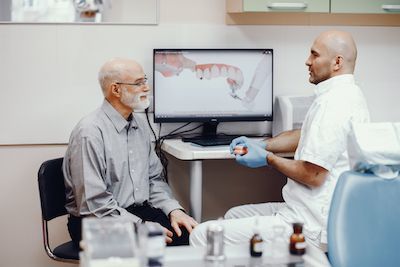As we age, our dental health becomes increasingly important for maintaining overall well-being. Senior citizens are especially susceptible to dental issues like gum disease, tooth loss, and dry mouth, which can lead to more serious health complications. Fortunately, there are steps that seniors can take to maintain good dental health and prevent these problems from arising. In this article, we will share the top 10 tips for seniors to maintain healthy teeth and gums.
Brush daily
When you brush your teeth, you remove plaque, which is a film of bacteria that can cause tooth and gum problems. It’s recommended that you brush your teeth at least twice a day, for two minutes each time. Use a soft-bristled toothbrush and fluoride toothpaste to gently clean your teeth, gums, and tongue.
Switch to fluoride toothpaste
Switching to fluoride toothpaste is an important step towards sustainable dental care. Fluoride is a substance that bolsters and increases the durability of tooth enamel and makes it more resistant to decay. It also helps repair the early stages of tooth decay, preventing the need for more invasive dental procedures.
Stay hydrated
When you’re dehydrated, your mouth produces less saliva, which can lead to a dry mouth. This can increase your risk of tooth decay and inflammation, as saliva helps to neutralize harmful acids produced by bacteria in your mouth. Drinking plenty of water throughout the day can help keep your mouth moist and healthy while also promoting overall hydration.
Floss daily
While brushing can remove plaque and debris from the surfaces of your teeth, flossing can remove plaque and food particles from the areas between your pearly whites and along the gum line where a toothbrush cannot reach. It is recommended that you floss at least once a day, using a gentle back-and-forth motion to gently clean the sides of each tooth. Flossing can be challenging at first, but with practice and the right technique, it can become an easy and effective dental hygiene habit.
Take calcium
Calcium is a mineral that helps to build strong bones and teeth, making it essential for maintaining healthy tooth enamel. In addition, calcium plays a key role in regulating the pH balance in your mouth, which can help to prevent various oral issues. If you’re not getting enough calcium from your diet, you may want to consider taking a calcium supplement after consulting with your doctor.
Watch out for side-effects
Many medications can have side effects that can impact your oral health, such as dry mouth. Other medications can cause changes in taste, which can affect your enjoyment of food and lead to poor nutrition. It’s important to let your dentist know about any medications you’re taking, as well as any side effects you’re experiencing.
Eat healthy
Eating a healthy and balanced diet is an important aspect of maintaining proper dental health. Consuming a diet that is rich in vitamins and minerals, such as calcium and vitamin D, helps to strengthen tooth enamel. Eating a diet that is low in added sugars and processed foods can also help to prevent cavities and gum disease.
Go for frequent checkups
Regular dental exams and cleanings can help to stop the development of tooth decay, gum disease, and other oral health issues. During a dental exam, your cosmetic dentist can identify any potential issues early on and provide treatment to prevent them from becoming more serious.
Apply proper denture care
Proper denture care is essential for maintaining good oral health, preventing discomfort, and extending the life of your dentures. It’s recommended that you clean your dentures daily to remove food debris and prevent the growth of harmful bacteria. Use a soft-bristled toothbrush or denture brush to clean your dentures, and be sure to use a denture cleaner that is specifically designed for the type of denture you have.
When you’re not wearing your dentures, store them in a clean, dry place to prevent warping or cracking. Be sure to handle acrylic dentures with care, as dropping them can cause damage or breakage. It’s also important to schedule regular checkups with your dentist, who can ensure that your dentures fit properly.
Avoid smoking
Smoking not only stains teeth and causes bad breath, but it also increases the risk of developing gum disease, tooth decay, and oral cancer. Smoking can also impair the immune system, making it more difficult for the body to fight off infections in the mouth. It may also slow down the healing process after dental procedures, increasing the risk of complications. If you’re a smoker, quitting can be one of the best things you can do for your oral health, as well as your overall health. By quitting smoking, you can reduce your risk of developing oral health issues in general.
Conclusion
There are several simple but effective ways for seniors to maintain good dental health. By following these tips, seniors can reduce their risk of developing a range of oral health issues and keep their teeth and gums strong and healthy. It’s never too late to start prioritizing your dental health, and making small changes to your daily routine can have a significant impact on your overall well-being.
*Featured Image Source












